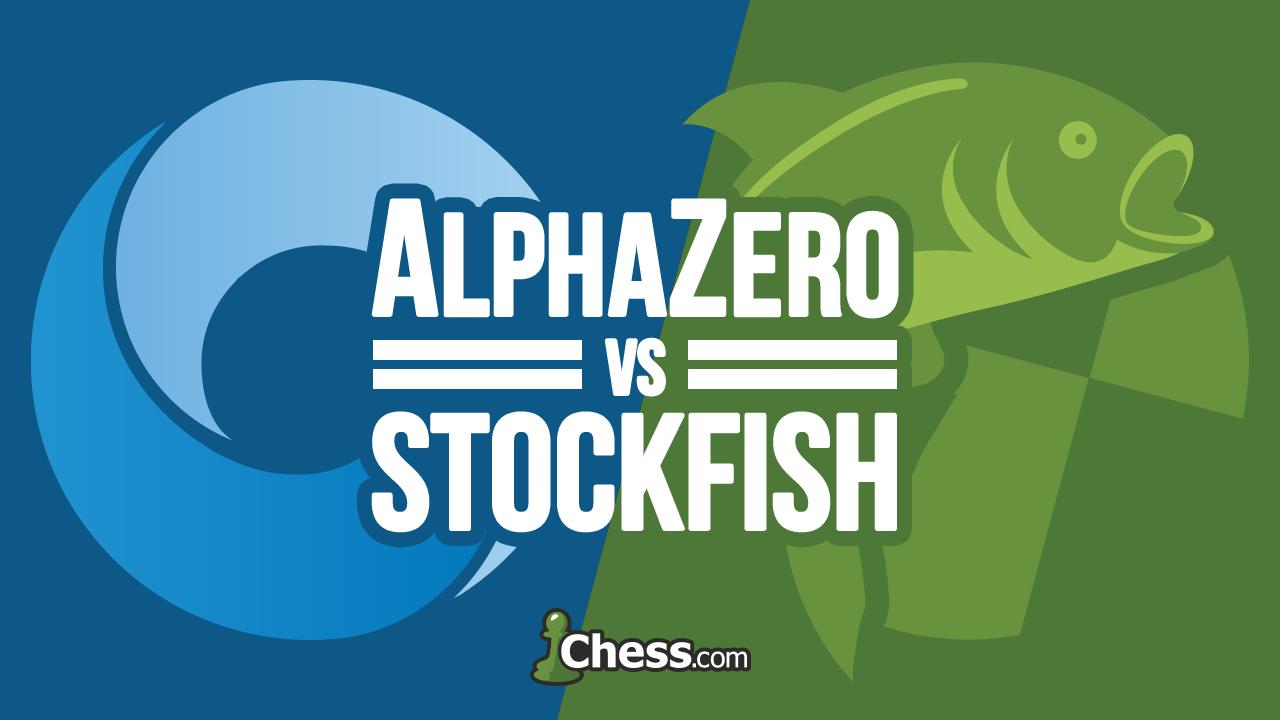
Google's AlphaZero Destroys Stockfish In 100-Game Match
Chess changed forever today. And maybe the rest of the world did, too.
A little more than a year after AlphaGo sensationally won against the top Go player, the artificial-intelligence program AlphaZero has obliterated the highest-rated chess engine.
Stockfish, which for most top players is their go-to preparation tool, and which won the 2016 TCEC Championship and the 2017 Chess.com Computer Chess Championship, didn't stand a chance. AlphaZero won the closed-door, 100-game match with 28 wins, 72 draws, and zero losses.
Oh, and it took AlphaZero only four hours to "learn" chess. Sorry humans, you had a good run.
That's right -- the programmers of AlphaZero, housed within the DeepMind division of Google, had it use a type of "machine learning," specifically reinforcement learning. Put more plainly, AlphaZero was not "taught" the game in the traditional sense. That means no opening book, no endgame tables, and apparently no complicated algorithms dissecting minute differences between center pawns and side pawns.
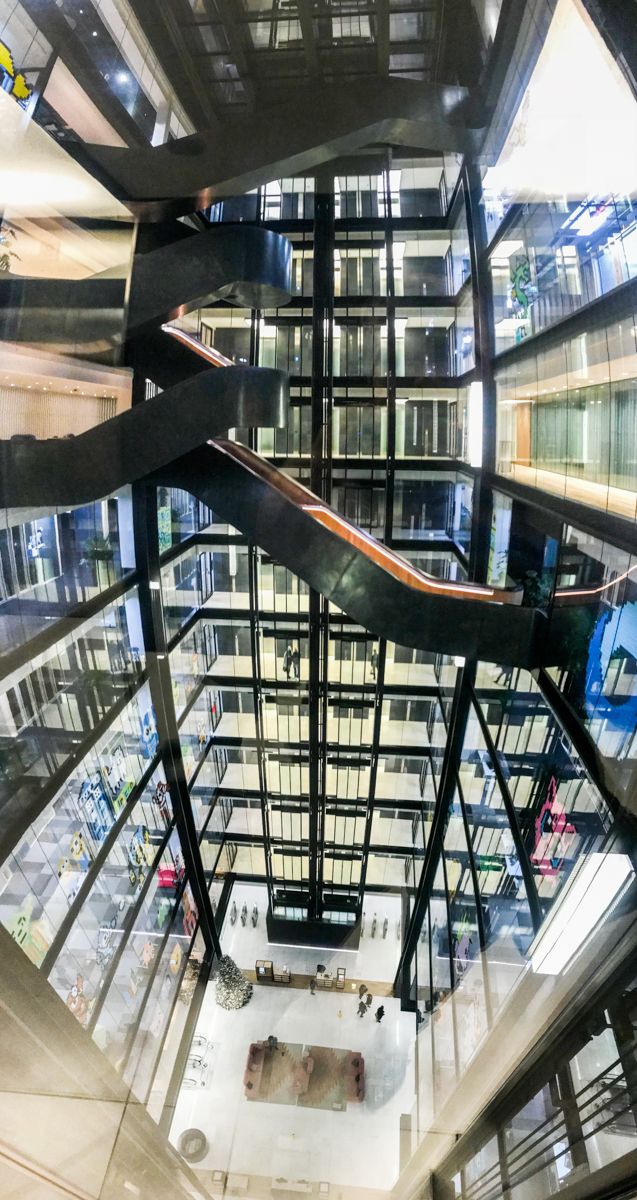
Google headquarters in London from inside, with the DeepMind section on the eighth floor. | Photo: Maria Emelianova/Chess.com.
This would be akin to a robot being given access to thousands of metal bits and parts, but no knowledge of a combustion engine, then it experiments numerous times with every combination possible until it builds a Ferrari. That's all in less time that it takes to watch the "Lord of the Rings" trilogy. The program had four hours to play itself many, many times, thereby becoming its own teacher.
For now, the programming team is keeping quiet. They chose not to comment to Chess.com, pointing out the paper "is currently under review" but you can read the full paper here. Part of the research group is Demis Hassabis, a candidate master from England and co-founder of DeepMind (bought by Google in 2014). Hassabis, who played in the ProBiz event of the London Chess Classic, is currently at the Neural Information Processing Systems conference in California where he is a co-author of another paper on a different subject.
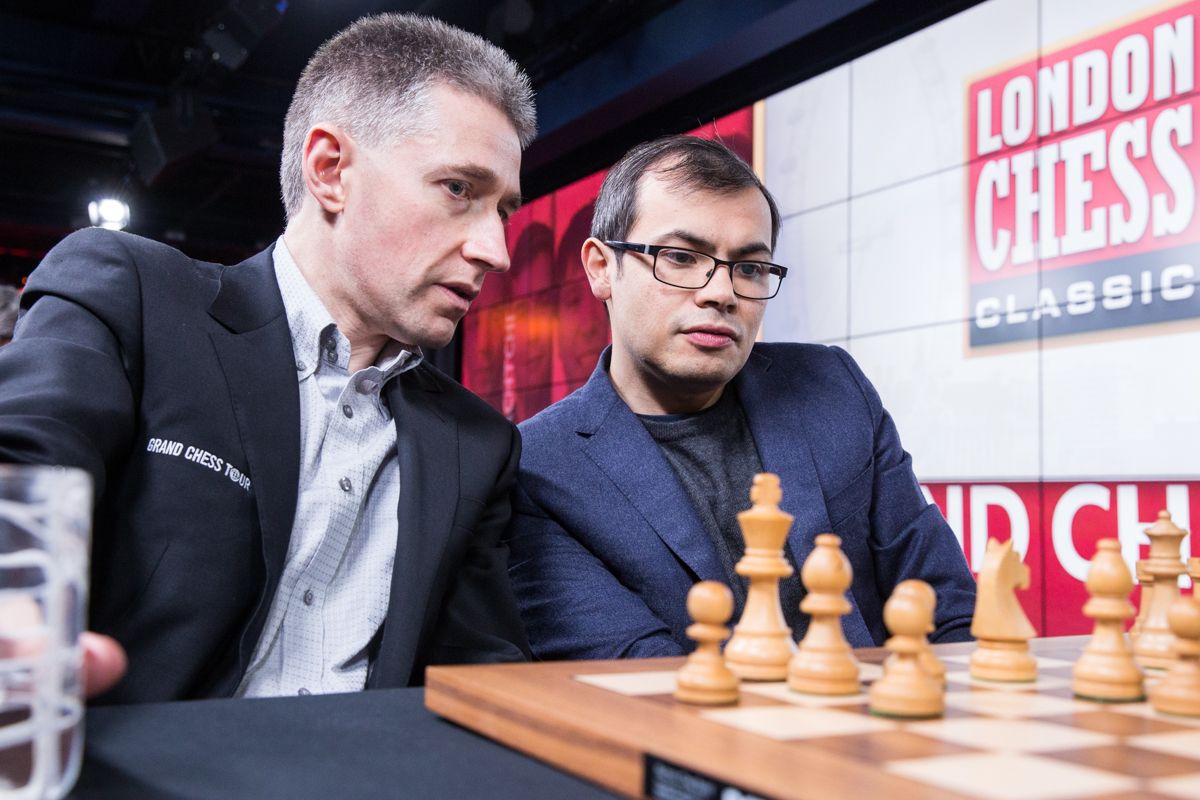
Demis Hassabis playing with Michael Adams at the ProBiz event at Google Headquarters London just a few days ago. | Photo: Maria Emelianova/Chess.com.
One person that did comment to Chess.com has quite a lot of first-hand experience playing chess computers. GM Garry Kasparov is not surprised that DeepMind branched out from Go to chess.
"It's a remarkable achievement, even if we should have expected it after AlphaGo," he told Chess.com. "It approaches the 'Type B,' human-like approach to machine chess dreamt of by Claude Shannon and Alan Turing instead of brute force."
One of the 10 selected games given in the paper.
Indeed, much like humans, AlphaZero searches fewer positions that its predecessors. The paper claims that it looks at "only" 80,000 positions per second, compared to Stockfish's 70 million per second.
GM Peter Heine Nielsen, the longtime second of World Champion GM Magnus Carlsen, is now on board with the FIDE president in one way: aliens. As he told Chess.com, "After reading the paper but especially seeing the games I thought, well, I always wondered how it would be if a superior species landed on earth and showed us how they play chess. I feel now I know."
Chess.com's interview with Nielsen on the AlphaZero news.
We also learned, unsurprisingly, that White is indeed the choice, even among the non-sentient. Of AlphaZero's 28 wins, 25 came from the white side (although +3=47-0 as Black against the 3400+ Stockfish isn't too bad either).
The machine also ramped up the frequency of openings it preferred. Sorry, King's Indian practitioners, your baby is not the chosen one. The French also tailed off in the program's enthusiasm over time, while the Queen's Gambit and especially the English Opening were well represented.
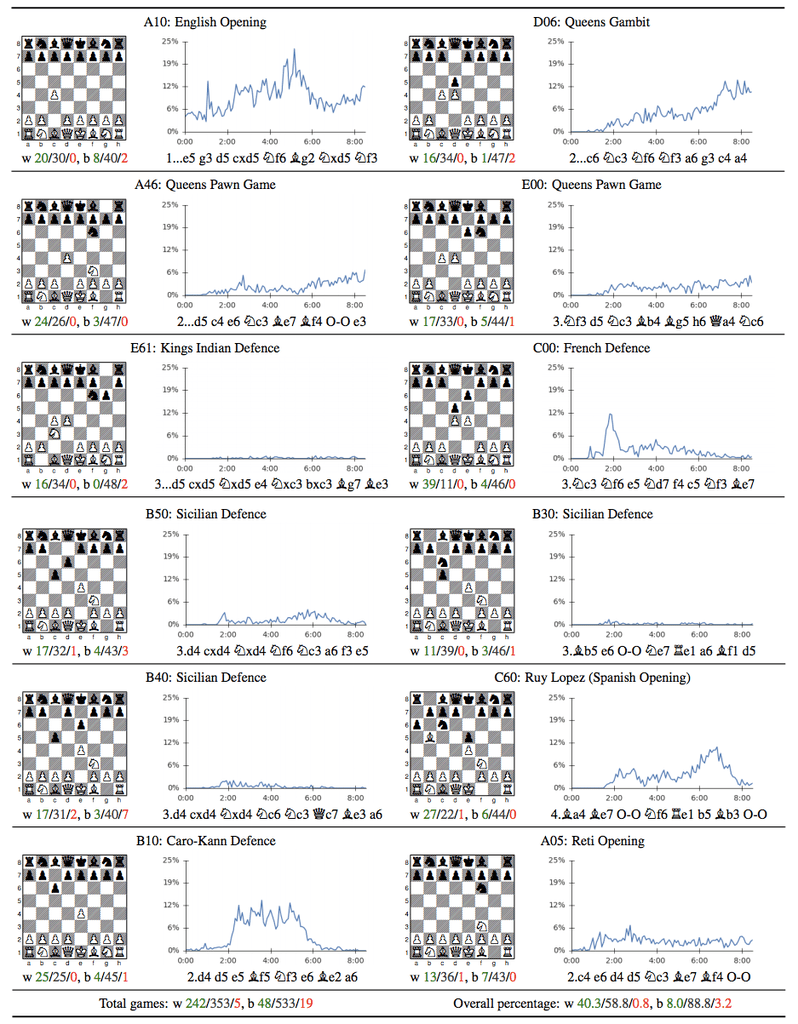
Frequency of openings over time employed by AlphaZero in its "learning" phase. Image sourced from AlphaZero research paper.
What do you do if you are a thing that never tires and you just mastered a 1400-year-old game? You conquer another one. After the Stockfish match, AlphaZero then "trained" for only two hours and then beat the best Shogi-playing computer program "Elmo."
The ramifications for such an inventive way of learning are of course not limited to games.
"We have always assumed that chess required too much empirical knowledge for a machine to play so well from scratch, with no human knowledge added at all," Kasparov said. "Of course I’ll be fascinated to see what we can learn about chess from AlphaZero, since that is the great promise of machine learning in general—machines figuring out rules that humans cannot detect. But obviously the implications are wonderful far beyond chess and other games. The ability of a machine to replicate and surpass centuries of human knowledge in complex closed systems is a world-changing tool."
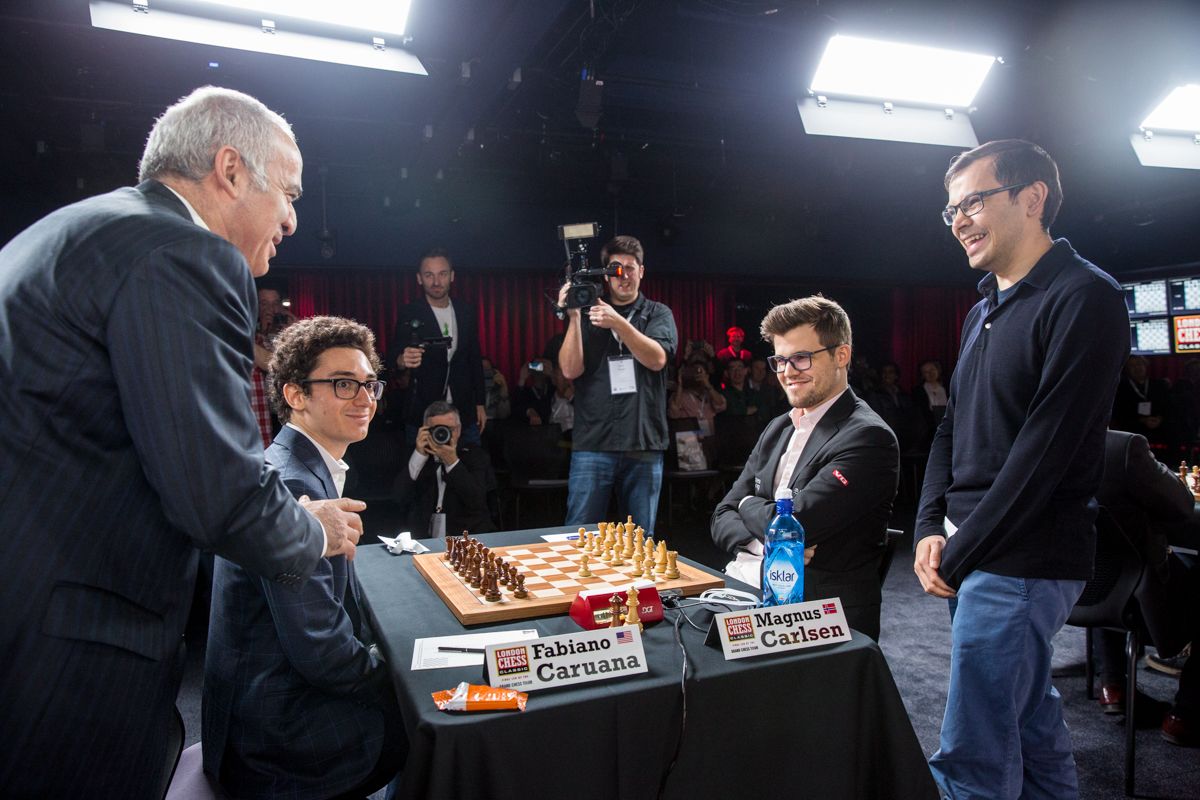
Garry Kasparov and Demis Hassabis together at the ProBiz event in London. | Photo: Maria Emelianova/Chess.com.
Chess.com interviewed eight of the 10 players participating in the London Chess Classic about their thoughts on the match. A video compilation of their thoughts will be posted on the site later.
The player with most strident objections to the conditions of the match was GM Hikaru Nakamura. While a heated discussion is taking place online about processing power of the two sides, Nakamura thought that was a secondary issue.
The American called the match "dishonest" and pointed out that Stockfish's methodology requires it to have an openings book for optimal performance. While he doesn't think the ultimate winner would have changed, Nakamura thought the size of the winning score would be mitigated.
"I am pretty sure God himself could not beat Stockfish 75 percent of the time with White without certain handicaps," he said about the 25 wins and 25 draws AlphaZero scored with the white pieces.
GM Larry Kaufman, lead chess consultant on the Komodo program, hopes to see the new program's performance on home machines without the benefits of Google's own computers. He also echoed Nakamura's objections to Stockfish's lack of its standard opening knowledge.
"It is of course rather incredible, he said. "Although after I heard about the achievements of AlphaGo Zero in Go I was rather expecting something like this, especially since the team has a chess master, Demis Hassabis. What isn't yet clear is whether AlphaZero could play chess on normal PCs and if so how strong it would be. It may well be that the current dominance of minimax chess engines may be at an end, but it's too soon to say so. It should be pointed out that AlphaZero had effectively built its own opening book, so a fairer run would be against a top engine using a good opening book."
Whatever the merits of the match conditions, Nielsen is eager to see what other disciplines will be refined or mastered by this type of learning.
"[This is] actual artificial intelligence," he said. "It goes from having something that's relevant to chess to something that's gonna win Nobel Prizes or even bigger than Nobel Prizes. I think it's basically cool for us that they also decided to do four hours on chess because we get a lot of knowledge. We feel it's a great day for chess but of course it goes so much further."


